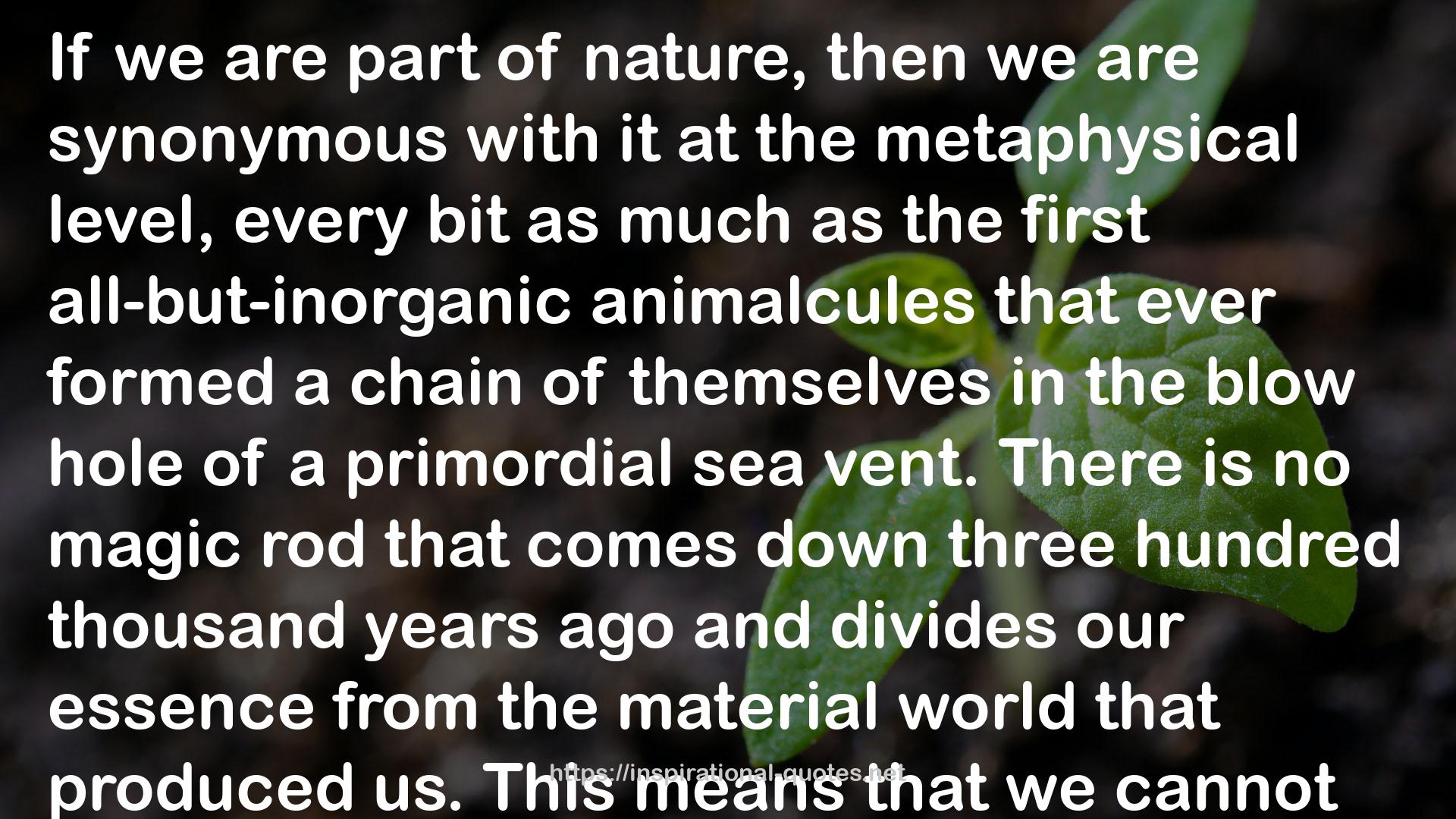" If we are part of nature, then we are synonymous with it at the metaphysical level, every bit as much as the first all-but-inorganic animalcules that ever formed a chain of themselves in the blow hole of a primordial sea vent. There is no magic rod that comes down three hundred thousand years ago and divides our essence from the material world that produced us. This means that we cannot speak in essential terms of nature—neither of its brutality nor of its beauty—and hope to say anything true, if what we say isn’t true of ourselves.
The importance of that proposition becomes clear only when it’s reversed: What’s true of us is true of nature. If we are conscious, as our species seems to have become, then nature is conscious. Nature became conscious in us, perhaps in order to observe itself. It may be holding us out and turning us around like a crab does its eyeball. Whatever the reason, that thing out there, with the black holes and the nebulae and whatnot, is conscious. One cannot look in the mirror and rationally deny this. It experiences love and desire, or thinks it does. The idea is enough to render the Judeo-Christian cosmos sort of quaint. As far as Rafinesque was concerned, it was just hard science. That part is mysterious. “She lives her life not as men or birds,” said Rafinesque, “but as a world. "
Tags: brutalityprimordialmetaphysicalsynonymousroddividesJudeo-Christianthree hundred thousand years agoRafinesqueanimalcules
Image for Quotes
